Looking for all about the B.Com Subjects list for all Semesters and Syllabus, Course details, eligibility criteria.
Admission process, Salary, course fees, career options in private and government organizations, etc.
Full-Form of B Com – Bachelor of Commerce
If you want to join BCom then here you will get all the subjects list and syllabus as per semester wise for regular pass class and year wise for Hons.

B.Com Subjects list and Syllabus
Regular Class Subjects and Syllabus
1st Year
| Semester 1 | Semester 2 |
|---|---|
| Financial Accounting | Business Laws |
| New Venture Planning ( E ) | Business Mathematics and Statistics |
| Business Organization and Management | Business Communication |
| Environmental Studies | Corporate Accounting |
| Business Economics | Principle of Macro Economics |
| Principles of Micro-Economics ( E ) | Economics of Regulation of Domestic and Foreign Exchange Markets ( E ) |
| English and Business Communication | Language ( English / Hindi / Other ) |
Financial Accounting
- Theoretical Framework
- Accounting Process
- Business Income
- Preparation of financial statements of not for profit organizations
- Accounting for Hire Purchase and Installment System
- Consignment, and Joint Venture
- Accounting for Inland Branches
- Accounting for Dissolution of Partnership Firm
New Venture Planning ( E )
- Starting New Ventures
- Methods to Initiate Ventures
- Legal Challenges in Setting up Business
- The Search for Entrepreneurial Capital
- The Marketing Aspects of New Ventures
- Business Plan Preparation for New Ventures
Business Organization and Management
- Foundation of Indian Business
- Business Enterprises
- The Process of Management
- Leadership, Motivation, Control, Change Management
- Conceptual framework of Marketing Management
- Financial Management, and Human Resource Management
Environmental Studies
- Introduction to Environmental Studies
- Ecosystem
- Biodiversity and Conservation
- Environmental Pollution and Global Environmental Issues
- Human Population and the Environment
- Field Work
Business Economics
- Introduction of Business Economics
- Demand Analysis
- Supply and Production Decisions
- Pricing and Output decisions under various market structures
- Pricing Practices
- Capital Budgeting: Evaluating Capital Projects
Principles of Micro-Economics ( E )
- Introduction
- (a) Demand and Supply
- (b) Elasticity of demand and supply
- (c) Application of demand and supply
- Consumer Theory
- Production and Cost
- Market Structure
- (a) Perfect Competition
- (b) Monopoly
- (c) Imperfect Competition
- Income Distribution and Factor Pricing
English and Business Communication
- Introduction to Business Communication
- Theory of Communication
- Corporate Communication
- Channels and Objectives of Communication
- Methods and Modes of Communication
- Principles of Effective Communication
- Writing Skills, Report writing
- Non-Verbal Aspects of Communicating
Semester 2
Business Laws
- The Indian Contract Act, 1872
- Special Contracts
- The Sale Goods Act, 1930
- The Limited LiabilityPartnership Act, 2008
- The Information Technology Act, 2000
Business Mathematics and Statistics
- Part – A: Business Mathematics
- (a) Matrices
- (b) Matrices Calculus
- (c) Basic Mathematics of Finance
- Part – B: Business Statistics
- Uni-variate Analysis
- Bi-variate Analysis
- Time-based Data: Index Numbers and Time Series Analysis
Business Communication
- Introduction of Communication
- Meaning of communication
- Characteristics of Communication
- Functions of Communication
- Mature of Communication
- Elements of Communication
Corporate Accounting
- Accounting for Share Capital
- Accounting for Debentures
- Accounting for Amalgamation and Internal Reconstruction
- Cash Flow Statement
- Financial Statements Analysis
Principle of Macro Economics
- Introduction
- National Income Determination
- Inflation
- Open Economy
- IS-LM Framework
Economics of Regulation of Domestic and Foreign Exchange Markets ( E )
- Regulation of Domestic Markets
- Foreign Trade Policy and Procedures
- Industries Development Regulation
- Foreign Exchange Market
- The Foreign Exchange Management Act, 1999
Language ( English / Hindi / Other )
- Poems, Lessons, Grammer
2nd Year
| Semester 3 | Semester 4 |
|---|---|
| Company Law | Corporate Accounting |
| Indian Economic ( E ) | E-Commerce |
| Financial Markets and Institutions | Human Resource Management ( E ) |
| Income Tax Law | Industrial Laws |
| Financial Analysis and Reporting | Investing in Stock Markets |
| Banking and Insurance |
Company Law
- Introduction
- Documents
- Management
- Company Meeting
- Dividends and Audit
- Winding Up
Indian Economic ( E )
- Basic Issues in Economic Development
- Issues in Indian Planning
- Policy Regimes
- Growth, Development, and Structural Change
- Sector-wise Trends and Issues – Industry, Foreign Trade, Price
Financial Markets and Institutions
- An Introduction to Financial System and its Components
- Financial Regulators in India
- Financial and Securities Markets
- Financial Servies
- Investment Banking
- Financial Institutions
- Merchant Banking
- Capital Market
Income Tax Law
- Basic Concepts
- Computation of Income under different heads – Salaries
- Income from house property
- Computation of Income under different heads
- Profits and gains of business or profession
- Capital gains, Income from other sources
- Total Income and Tax computation
- Computation of total income of individuals and firms
Financial Analysis and Reporting
- Basis of Financial Reporting 5 Lectures
- Understanding Financial Statements
- Components of Financial Statements
- Analysis & Interpretation of Financial Statements
- Accounting Standards in India & IFRS
Banking and Insurance
- Origin of banking: definition, Types of deposits, Origin, and growth of commercial banks in India.
- Achievements of Financial Sector Reforms and Areas of Concern
- Principles of sound lending, Secured vs. unsecured advances, Types of advances, advanced against various securities
- Basic concepts of risk, Types of business risk
- Legal Aspects of an insurance contract, Types of insurance
Semester 4
Corporate Accounting
- Accounting for Share Capital & Debentures
- Final Accounts
- Valuation of Goodwill and Valuation of Shares
- Amalgamation of Companies
- Accounts of Holding Companies/Parent Companies
- Banking Companies
- Cash Flow Statement
E-Commerce
- Introduction to E-Commerce
- Planning Online-Business
- Technology for Online-Business
- Operations of E-Commerce
- Security and Legal Aspects of E-Commerce
Human Resource Management ( E )
- Human Resource Management
- Acquisition of Human Resource
- Training and Development
- Performance Appraisal
- Compensation and Maintenance of employees
Industrial Laws
- The Employees Provident Fund & Miscellaneous Provisions – Act, 1952 13 Lecturers
- Employees State Insurance Act, 1948
- Payment of Wages Act, 1936
- The Payment of Bonus Act, 1965
- Payment of Gratuity Act, 1972
- Employee’s Compensation Act, 1923
Investing in Stock Markets
- Investing Fundamentals
- Stock Analysis and Valuation
- Investing in Mutual Funds
3rd Year
| Cost Accounting | Fundamentals to Financial Management |
| Principles of Marketing ( E ) | Business Communication |
| Training and Development | Personal Selling and Salesmanship |
| Computer Application in Business | Cyber Crimes and Laws |
| Advertising | International Business |
Cost Accounting
- Introduction to Cost Accounting
- Materials, Labour
- Overhead
- Service costing (only transport)
- Marginal costing and Break-Even Analysis
Principles of Marketing ( E )
- Introduction to Principle of Marketing
- Consumer Behaviour, Market segmentation
- Product
- Pricing, Distribution
- Promotion, Recent developments in marketing
Training and Development
- Introduction to Training and Development
- Training Needs Assessment and Curriculum Development
- Training Methods
- Evaluation of Training and Development, and Emerging Pattern
Computer Application in Business
- Introduction to Computer Application in Business
- Introduction to essential tools – Word, PowerPoint, Excel
- Using MS Excel for Data Analysis & Reporting Features
- RDBMS Concepts & Access
- CAAT Tools
Advertising
- Introduction to Advertising
- Media Decisions
- Message Development
- Measuring Advertising Effectiveness
- Advertising Agency, Social, ethical and legal aspects of advertising in India
Semester 6
Fundamentals to Financial Management
- Nature, scope, and objectives of financial management, Time value of money, Risk and return
- Long-term investment decisions
- Financing Decisions
- Dividend Decisions
- Working Capital Decisions
Business Communication
- Introduction to Business Communication
- Business Correspondence
- Report Writing
- Business language and presentation
- Technology and Business Communication
Personal Selling and Salesmanship
- Introduction to Personal Selling
- Theories of Selling
- Buying Motives
- Selling Process
- Sales Planning and Control
Cyber Crimes and Laws
- Cyber Crimes
- Definition and Terminology (Information Technology Act, 2000)
- Electronic Records
- Regulatory Framework
International Business
- Introduction to International Business
- International Business Environment
- Theories of International Trade
- Regional Economic Co-operation
- International Financial Environment
- Foreign investments
- International business operations
- Developments and Issues in International Business
Read More –
BCom Full Form, Bachelor of Commerce Course Details
List of Best Courses after BCom / Career Options
Honours Class Syllabus and Subjects
1st Year
- Industrial Organisation and Management
- Business Mathematics
- Business Environment
- Language ( English / Hindi /Regional )
- Monetary Theories and Institutions
2nd Year
- Information Technology and Business Communication
- Costing and Auditing
- Business Statistics
- Business Regulatory Framework
- Public Finance and Budgeting
- Business Economics
- Specialized Accounts
3rd Year
- Advanced Company Accounts and Financial Analysis
- Company Laws and Secretarial Practice
- Income Tax Law and Accounts
- Business Entrepreneurship
- Elective Subject 1
- Elective Subject 2
- Viva – Voice
Elective Subjects
| 1 | 2 | 3 |
| Indian Booking System | Internet World Wide Web | Sales Management and Advertising |
| Insurance Principles and Practices | Essentials of E-Commerce | Essentials of Marketing |
| 4 | 5 |
| Labour Welfare and Social Security | Financial Markets in India |
| Industrial Relations and Labour Laws | Financial Services |
B.Com Course Details
B.Com is one of the best undergraduate courses after 12th class in any stream but generally, it is most suitable for commerce students.
It is related to banking, finance, accounting, information system, computer.
It is the economical course and most suitable for the sales, marketing, accounting, finance job areas.
BCom includes the following Specializations so you can choose as per your interest for further study.
- Computer Application
- Taxation
- Advertising and Sales Management
- Office Management
- E-Commerce
- Foreign Trade
Eligibility criteria for BCom course
The Students from any stream can take admission in bachelor of computer application, no matter a student from a science background, commerce background, and arts background.
If you have passed the 12th class from a recognized board then you are eligible for a bachelor of computer application.
But some colleges demand a minimum of 45-50% marks in the 12th class in any stream from a recognized board.
There are some reputed colleges that demand compulsory Mathematics and English in 12th standard, in order to take admission in that particular college so must have 12th pass with English and Mathematics.
There are some colleges that give admission without English and Mathematics and also that don’t demand a minimum of 45-50% marks and they have no such entrance exam.
Age Limit
There is no minimum and maximum age limit in order to pursue the BCom ( Bachelor of Commerce ) course.
Admission Process
Direct / Merit Based / Entrance Exam
The admission process varies from university to university.
There are so many institutes that offer direct admission on basis of 12th marks obtained from a recognized board.
And there are many institutes that take an entrance exam and also conduct group discussions for admission.
Popular Entrance Exam
- JNUEE – Jawaharlal Nehru University Entrance Examination
- GLAET – GLA University Entrance Test
- SET – Symbiosis Entrance Test
- KIITEE – Kalinga Institute of Industrial Technology Entrance Exam
- SUAT – Sharda University Admission Test
- IPU CET – Guru Gobind Singh Indraprastha University Common Entrance Test
- AIMA UGAT – All India Management Association Under Graduate Aptitude Test
Mode of Pursue ( BCom )
General / Specialization ( Hons )
Course Duration
3 Years ( 6 Semesters )
The BCom ( Bachelor of Commerce ) course is a regular, distance, and online 3 years course that includes 6 semesters.
Exam Type
Semester wise
Now almost every university takes exams on a semester basis.
There are 2 semesters in a year, each semester cover 50% syllabus of a year.
Therefore, according to the semester, there is only a 50% syllabus in the examination.
Course Fees
It is the charge students paid for their tuition classes in educational institutes for their education purpose.
Course fees depend upon the institute so they charge as per their demand.
The BCom course fees vary from college to college as follows.
Rs. 10K – 30K as per institute or state ( Government )
Rs. 30K – 1.5 Lakh as per institute or state ( Private )
Salary after BCom Course
The salary depends upon the organization and what knowledge you have and it increases as per your experience, knowledge, performance, and skills.
As a fresher, you can expect 2.5 lakh – 4 lakh per annum
Why Should I Choose BCom
- There are a lot of career options after BCom such as MCom, MBA, CA, CS, B.Ed, CMA, CFA, PG in Diploma Course, etc.
- Easy to find job, vast job areas such as Banks, ( Marketing, Insurance, Investment ) Industry, Educational, Business Consulting, etc.
- Very handsome salary
- First priority of banking / financial firms.
- Best Jobs such as Accountant, Finance Manager, Stock Brocker, Business Analyst, Budget Analyst, Finance Officer, and many more.
- It’s a flexible course, you can change your stream.
- It helps to become a businessman.
- Everyone can join the BCom course.
Required Skills
| Creative and Innovative Skills | Subjects Knowledge |
| Critical Thinking | Ability to work under Pressure |
| Teamwork and Collaboration Skills | Problem Solving Skills |
| Communication Skills | Leadership Skills |
Job Profiles
| Accountant | Consultant |
| Teacher | Company Secretary |
| Business Analyst | Junior Analyst |
| Tax Accountant | Economist |
| Stock Broker | Finance Officer |
| sale Analyst | Auditor |
| Accounting Officer | Professor |
BCom Vs BBA
| Basis | BCom | BBA |
| Full-Form | Bachelor of Commerce | Bachelor of Business Administration |
| Higher Study | MCom, MBA | MBA |
| Degree | General Tradition degree Course | Professional Degree Course |
| Fees | 30K – 1.5 lakh | 1 – 4 Lakh |
| Salary | 15K – 20K | 20K -25K |
| Admission Process | Direct / Entrance Exam | Direct / Entrance Exam |
| Difficulty Level | Easy | Average |
| Mode of Pursue | General / Honours | General / Honours |
Career Options after BCom
The course you choose is up to you.
However, there are some courses you need to consider depending on the interest you have.
1. MCom
MCom – Master of Commerce
It is the best post-graduation course after BCom or graduation for those who are interested in accounting, sales, finance, marketing, etc.
There is some important specialization in MCom such as,
- Accounting
- Marketing
- Finance
- Business Analytics
- Corporate Law
- Human Resource Management
- International Business
- Entrepreneurship
- Taxation
- Operations
2. MBA
MBA – Master of Business Administration
It is also the most preferable professional course for BCom students in the management, marketing, and finance field.
If want to do business then you must join MBA because it provides a lot of knowledge about how to do business.
Nowadays the MBA degree has become the most demanding course because of new start-ups, trends of doing business, and many more.
3. CA
CA – Chartered Accountant
CA is one of the best 4.5 years professional courses after BCom that are willing to become a chartered accountant.
If you are interested in accounting, advising people about business accounts, financial advice, liaising with clients, taxation, and auditing then you can join a BCom course.
4. PGDM
PGDM – Post Graduation Diploma in Management
Post Graduation Diploma in Management is one of the best post-graduation courses after BCom or Graduation.
There are some specializations in PGDM such as
- Marketing
- Finance
- Business Analytics
- International Business
- Operation Management
- Biotechnology
- E-Business
- Entrepreneurship
5. B.Ed
B.Ed – Bachelor of Education
It is the best course after BCom for those who want to become a teacher for government and private schools, the government, and a private colleges.
If you are interested to join the teaching field then you must join the bachelor of education course.
6. MMM
MMM – Master of Management Studies
The master of management studies is one of the best post-graduation programs after BCom ( Bachelor of Commerce ) in the management area.
This program is approved by AICTE/UGC.
The master of management studies course is specially designed for increasing management skills.
7. CMA
CMA – Cost Management Accountant
It is the best globally organized professional course after BCom or graduation in the commerce field.
If you have very good command in finance, management accounting, laws, and taxation then you should choose CMA for your bright future.
8. Digital Marketing
It is also the best course after BCom because digital marketing is on-trend these days.
Nowadays, Internet usage is increasing day by day
Generally, No need for any special qualification to learn digital marketing.
If you are in 6th, 10th, 12th, or graduate, you can start to learn digital marketing.
Digital marketing contains courses as follows.
| Blogging | Affiliate marketing |
| Social Media Marketing | Mobile Marketing |
| Web Analytics | Email Marketing |
| Sales funnel | Convention rate optimization |
| Search Engine Optimization | Content Marketing |
9. CFA
CFA – Chartered Finance Analyst
It is the best internationally recognized program after graduation conducted by the USA.
This course is generally most suitable for commerce students.
If you are interested to make a career in
- Investment Banking
- Capital Market
- Portfolio Management
- Equity Research
- Corporate Finance
- Stock Market etc.
Then this course ( CFA ) can be the best career option for your bright future.
10. CS
CS – Company secretary
It is the best course for BCom or any graduation course for building a bright career in any reputed company or organization.
If you are interested in
- Secretarial auditing
- Accounting, arranging meetings
- Keeping records
- Managing things in a proper manner
- Tax returns
- Drafting and executing agreements
- Making appointments, etc.
Top Colleges –
- Loyola College, Chennai Tamilnadu
- St. Xavier’s College, Mumbai Maharashtra
- Shri Ram College of Commerce, New Delhi
- Madras Christian College, Chennai Tamilnadu
- ASM’s Institute of Management and Computer Studies, Thane
- Christ University, Bangalore Karnataka
- St. Joseph’s College of Commerce, Bangalore Karnataka
- TKWs Institute of Banking and Finance, Delhi
- HL College of Commerce, Ahmedabad Gujarat
- The Maharaja Sayajirao University of Baroda, Gujarat
Read More –
List of Best Courses after BCom / Career Options
MBA Subjects List and Syllabus for all Semesters
BCA Course Details ( Bachelor of Commerce )
FAQs
Q1 – What are the major subjects of BCom?
A – Management, Accounting, Economics, Marketing, English, Finance, Statistics, Computer, Law, Human Resource, etc.
Q2 – What is the Full form of BCom?
B.Com – Bachelor of Commerce
Q3 – Is BCom easy?
A – No, it is not easy and hard but it is all about our interests.
Q4 – Can science students do BCom?
A – Yes, If they want to join B.Com after 12th science then they can do B.Com

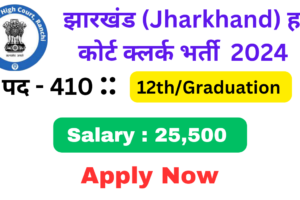
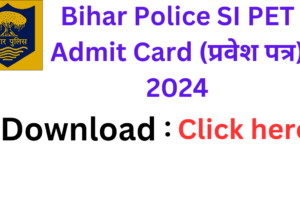
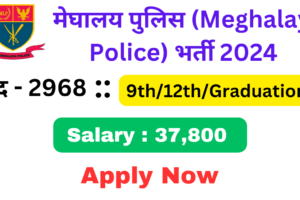

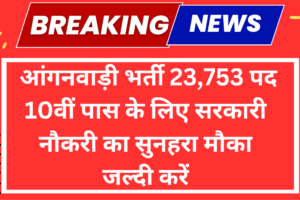
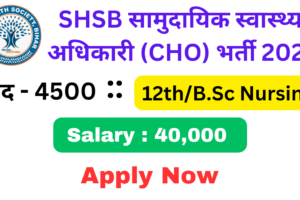

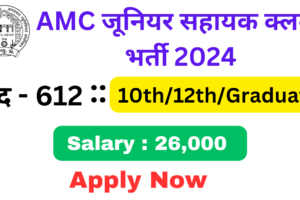
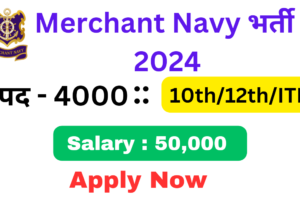

All syallbus